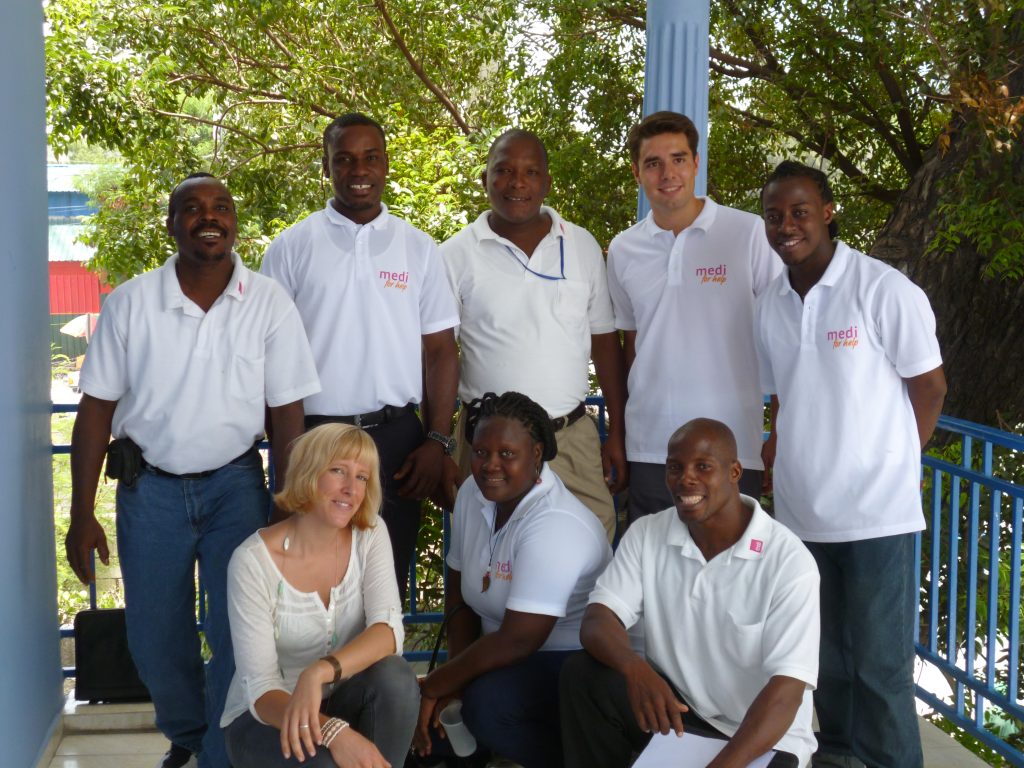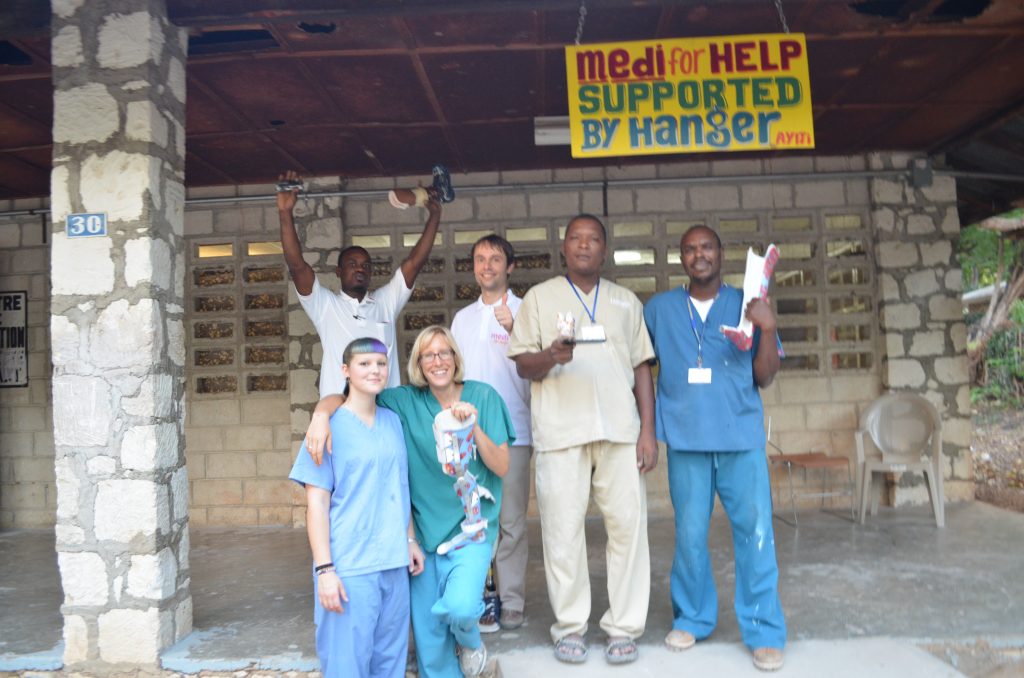
Cornelia Köhler is the new workshop manager for medi for help
One of the most important decisions in life is which career to follow. It’s ideal when calling meets career. As in Cornelia Köhler’s case. “I had always wanted to work with my hands. Preferably in the field of medicine. Something I could do to help other people”, the 26-year-old said. It’s no problem for Köhler that she’s already been pursuing her profession in disaster areas.
For instance, in March 2010, shortly after the catastrophic earthquake, she went to Haiti as an orthopaedic technician with the Johanniter international relief organisation. Initially concerned with tending the wounds of the injured, her activities gradually shifted to providing leg prostheses. “I always had great fun working together with my Haitian colleagues and the patients. I was most deeply impressed by the patients’ gratitude, and this confirmed my convictions – particularly during difficult moments”. So eventually the six months originally planned turned into two whole years. By the end of her stay she had set up and was managing the orthopaedic workshop in Leogâne (40 kilometres away from Port-au-Prince) together with a colleague, and had trained six indigenous trainees in the field of orthopaedic technology.

Many wide-ranging challenges
One and a half years later, now a master orthopaedic technician, she’s back in Haiti. Back in the disaster area. Where she feels she’s needed most. Devoted to her work as workshop manager for medi for help. After a six-week induction period under her predecessor Michael Beck, she has now been responsible for the patients and the medi for help staff members since the beginning of July. Her mission is planned to last a year, at least.
The challenges that she and her team will have to overcome are as numerous as they are varied. For example, renovation and conversion work in and on the workshop is common. At the moment the high air humidity is attacking the walls in the fitting rooms so they’re beginning to crumble. Part of the walling has to be replaced and plastered as soon as possible. They are also planning to fit out a new plaster room for the patients.
But she also has to organise repairs to defective fans, plaster saws and a broken hot air blower. And that can take time. “First I have to file an application to the hospital for a repair. They then review the request; which takes about two weeks. A hospital employee then comes to the workshop to inspect the dilapidated parts of the building or the defective equipment. After another two weeks the actual technician or workman comes to carry out the repairs”, said Köhler. A waiting game that not only tries your patience. Flexibility and pragmatism are also need to keep the workshop running. This is where the young workshop manager benefits from the experience she gained during her first Haiti mission. “For example, we’ve replaced the hot air blower we need for modifying the prostheses with a Bunsen burner for the time being. So we can carry on providing the patients with prostheses as fast as they need them”.
And we’ll be able to do so for the next few months. Because: urgently needed materials such as resin, adhesive, plastic and rivets have finally been delivered. After six months! That’s how long the Haitian customs impound the goods. “We felt like it was Christmas when the supplies were eventually delivered” says Köhler. “They are our most valuable assets and the very basis of our work”. If the technicians use them sparingly we can build up to 300 sockets and orthoses.
The fact that the consignment has arrived just now is another happy coincidence for another reason. The relief organisation recently opened the second workshop in Port-au-Prince. “So now many patients no longer have to put up with the four-hour journey to Deschapelles, instead they can be cared for right where they live”, says Köhler. And the way she says it shows that this really is her calling.